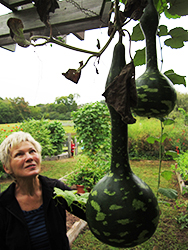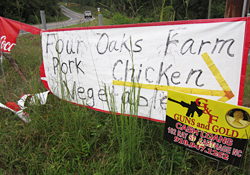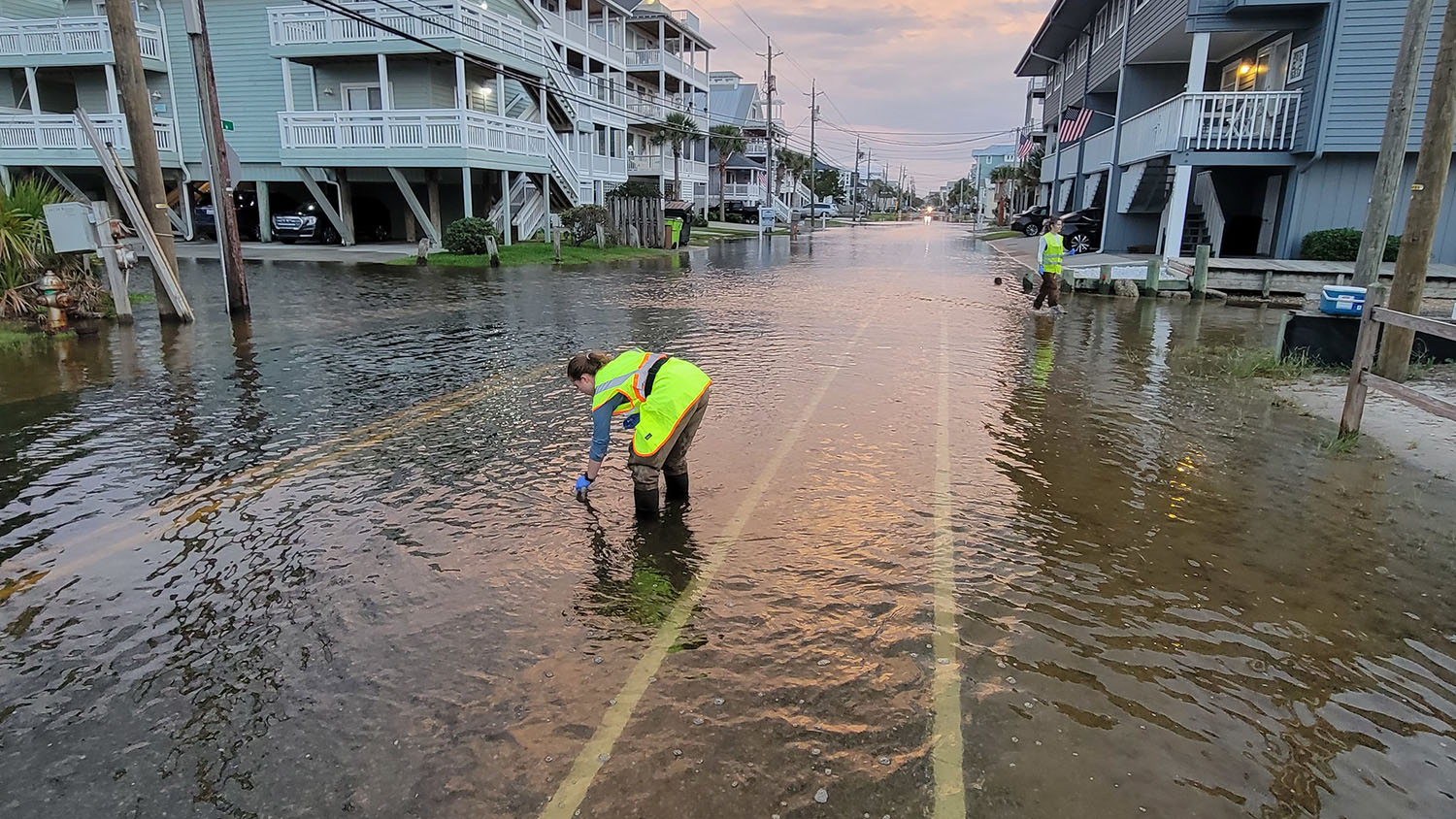Putting Rural Tourism on the Map
Norma DeCamp Burns glides through her organic garden like an elegant queen, quietly pointing out green pepper basil, rosemary and Echinacea plants, four species of fig trees and bright, tropical flowering plants.
Burns bought the Bluebird Hill Farm in Bennett, N.C. 10 years ago and supports herself by offering tours of the stunning property through her website, hosting seasonal banquets and selling flowers, essential oils and produce to customers and restaurant owners in Raleigh.
“It’s a great, busy life and with a gorgeous view,” she says, pointing to the misty fields below.
However, often sales are slow and tours are infrequent. That’s why Burns joined People-First Tourism (P1T), a new Web-based initiative supported by the North Carolina Rural Economic Development Center (REDC) and founded by Duarte Morais, associate professor in the College of Natural Resources. The grant has supported field work and software development and on Sept. 1 the website went live.

P1T uses technologies such as mobile phones to help connect rural entrepreneurs with a lucrative market: urban sophisticate tourists and home-schooling parents wanting genuine and meaningful interaction with people that have traditional, rural lives. P1T also connects entrepreneurs with one another and regional development groups.
“This way entrepreneurs gain a collective voice, share information and resources,” Morais says. “Networking is the top factor for successful microentrepreneurship.”
How It Works
From P1T’s site, tourists can search profiles by region or keywords like “chicken farms” or “trout fishing.” When they request a tour, the entrepreneur/operator receives a text message, responds with their availability and the tourist pays via PayPal.
So far, Morais and his students are coaching entrepreneurs in three pilot communities on writing bios and packages that appeal to tourists and ensuring they have cell phone coverage and a PayPal account.
“My students love it. They are engaged and they are helping implement the project,” Morais says.
Currently P1T features 20 entrepreneurs, including a rabbit farmer, a soap maker and several fishing guides. There are plans to add another 80 by winter.
“This is efficient and simple. Once the tourist pays, they are committed and the entrepreneur doesn’t have to wait for calls,” Morais says.
Humble Starts
P1T began at Penn State University where Morais taught for 10 years. He further developed the initiative at NC State, successfully testing the service in South Africa last year where tourism students connected remote entrepreneurs with tourists.
Morais also learned from his parents, who converted their 17th century farm in northern Portugal into a thriving agritourism business. Six bedrooms, a sauna and commercial kitchen were added. The place became so popular that two presidents of Portugal have visited and eventually his parents were able to relinquish their city jobs.
“This personal experience inspired me to think about how enterprising non-industrial farmers can cope with the ongoing costs of their land,” Morais says.
A Cross-Campus Initiative
Morais is proud that P1T is collaborative, involving help and ideas from professors and students across campus. The Institute for Next Generation IT Systems has been hugely helpful. When computer science students realized Burns and other remote farmers lacked reliable cellphone coverage, they suggested using Google Voice, which works better than mobile phones when entrepreneurs have reliable access to the Web.

Tourism doctoral student Chantell La Pan has spent hours in the field working with new entrepreneurs on their profiles for the P1T site and her research on what constraints and motivates the entrepreneurs has become the subject of her dissertation.
“I’ve learned money is not the common motivation. It’s a desire to maintain a country life,” she says.
Next Steps
Morais knows that the tourism side to these rural businesses will grow slowly, but hopes eventually P1T will lead to increased visitor spending and jobs. He also feels inspired by the rural entrepreneurs.
“These are industrious people who live with meaning and dignity while holding onto their land,” he says. “We are in the business of shifting the odds a little more in their favor.”
- Categories:


